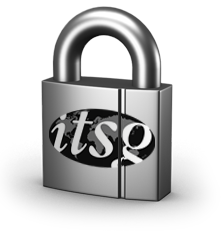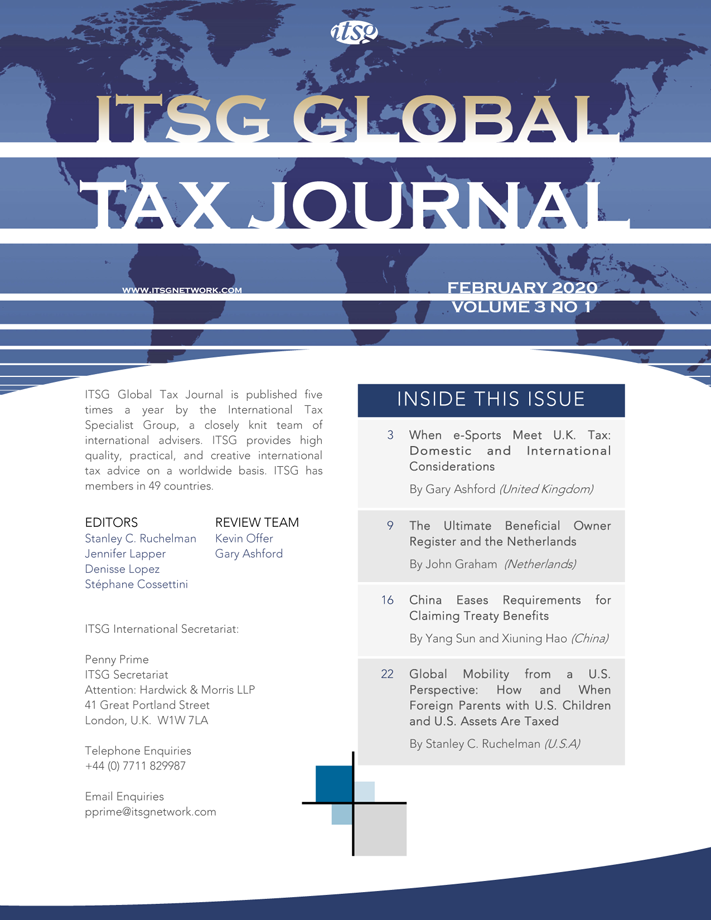THE RISE OF E-SPORTS
The world of video games and video game tournaments, known as e-Sports, has come a long way since the days when Space Invaders, Pacman, and Donkey Kong were state of the art. And while competitive gaming may be new to some, including tax authorities, the first tournament of the game Spacewar! took place at Stanford University in 1972, 48 years ago.
According to a 2019 report, there are now an estimated 2.5 billion gamers worldwide, and gaming revenues are on the rise. Last year, the video game market was expected to generate the head-turning figure of $152.1 billion, up 9.6% from the previous year1.
E-Sports have seen a tremendous increase in recent years. It is believed that the e-Sports market was worth around $130 million in 2012. For 2019, the estimated worth was $1.1 billion. It is expected to grow to around $1.7 billion by 20222.
The global interest in this sport is evident from the fact that the International Olympic Committee and the Global Association of International Sports Federations jointly hosted an e-Sports forum in Lausanne, Switzerland, on 21 July 20183, and Intel has announced that it will host the Intel World Open, an e-Sports tournament that will take place on the lead-up to the 2020 Olympic Games in Japan4.
Nonetheless, a number of issues may prove to be barriers to e-Sport becoming a full-fledged Olympic sport. As expressed by Olympic President Thomas Bach in September 2018, some video games are simply ‘too violent’5. Furthermore, a practical hurdle is that many video games are backed by gaming publishers. This means that significant commercial discussions would be necessary in order to acquire the appropriate rights to events and participants.
Not surprisingly, no specific tax rules currently exist for e-Sports. Consequently, it is necessary to apply general principles when contemplating the way tax would be imposed on income generated from the sport. This is not a simple task, particularly in an area which changes rapidly and involves various groups at the national and international levels. As with the digital economy in general, the e-Sports world has challenged, and continues to challenge, the fabric of the international tax model.
RELEVANT TAX ISSUES FOR U.K. RESIDENTS
In the U.K., the principal domestic tax issues are (i) whether the activity is taxable, (ii) whether there is a trade that is being carried on, and (iii) if no trade is carried on, whether there is income tax.
Is e-Sports activity a trade or a hobby?
The first test in the U.K. generally is whether the individual or entity conducting the activity is trading or if the participant is engaging in a hobby. Depending on the result, income from e-Sports may fall under s.3 of the Income (Trading and Other Income) Act 2005 (I.T.T.O.I.A.) or s.34 of the Corporation Tax Act 2009 (C.T.A.).
Determining whether a person is carrying on trading activity is not a straightforward task. Significant case law in the U.K. addresses the question, and because the answer is fact specific, there are as many answers as there are fact patterns. A report was published by the Royal Commission on the Taxation of Profits and Income in 19556. It sets out six ‘badges of trade’, which essentially still hold true in combination with an additional three have been added over time:
- profit seeking motive
- number of transactions
- nature of the asset
- existence of similar trading transactions
- changes in the asset
- way in which the sale was carried out
- source of any finance
- interval between purchase and the sale
- method of acquisition
The application of these tests to any particular set of facts in order to distinguish a trade from a hobby is a dauntless task. If it is determined that a trade exists, it is appropriate to identify the scope and net profits, or losses, generated by the trade under generally accepted accounting principles. If the activity does not rise to the level of a trade, it is considered a hobby.
Where a trade is carried on, most types of income will be characterized as income of the trade. Included are as winnings, sponsorships, and endorsement income. Even where the activity does not reach the level of a trade, positive net income likely will be taxed under the U.K. Miscellaneous Income rules contained in ss.687-689 I.T.T.O.I.A. or ss.979-981 C.T.A.
Given the nature of gaming, it is necessary to consider the case where the activity is recognised as a hobby. Hobbies, per se, are not taxable in the U.K., but that does not mean that any income arising when participating in a hobby is not taxable, especially when stakes are high and prizes are substantial. This is where the Miscellaneous Income rules come in again.
Nonetheless, an important distinction exists between a hobby and trade. Whether income is taxable as part of a trade or as miscellaneous income, deductions will still be available to determine taxable ‘profit’. As such, it is very important to appreciate, that even if expenses are deductible under generally accepted accounting principles, they will not always be allowable for U.K. tax purposes. U.K. law requires expenses to be ‘wholly and exclusively’ related to the trade in hand. Clearly, if there is no trade, certain expenses will not be allowable or may possibly be restricted. This can be the case with loan interest. However, where a participant is engaged in an e-Sports activity and generates income categorized as winnings, sponsorships, and endorsement income, the participant is likely not participating in a hobby, where most people lose large sums and attempt to write-off losses against income.
What about losses?
Similar to other countries, claiming tax benefits for losses is controversial in the U.K. Numerous rules and restrictions exist regarding the losses that can be set off against trading income or general income.
Losses arising on a trade receive the most favourable treatment, but even in cases where a trade exists, further restrictions can still arise. S.66 of the Income Tax Act 2007 (I.T.A.) provides for the restriction of trading losses where the trade is not conducted on a commercial basis with the view to the realisation of profits from the trade. Again, there is significant case law in this instance. But even here, big players in e-Sports who generate winnings and endorsement revenue one year and losses in the next without an increase in the scope or character of expenses should be viewed to conduct their trade on a commercial basis with a view to profit, especially if e-Sports activity is the participant’s principal or only business activity.
E-Sports teams
If a participant is employed by an e-Sports team by way of a Contract of Services (as opposed to a Contract for Services), their ‘earnings’, including benefits in kind, will be taxed under the provisions of Income Tax (Earnings and Pension) Act 2003 (I.T.E.P.A.). If associated with the contract, this may well extend to sponsorship, endorsement income, and expenses paid to or on behalf of the employee. Expenditure that is wholly, exclusively, and necessarily incurred as part of the duties, may well qualify for a deduction. This should apply to expenditures incurred in connection with a visit a temporary workplace, a more tax technical way to describe ‘away matches’.
As e-Sport teams have become highly organised, as possible employers, the current hot issue to consider in the U.K. is the outsourcing of employees to a wholly owned personal services company that contracts to provide the services of the e-Sports participant. This is especially of interest when e-Sports events may be viewed as a sector of the high-tech industry. Consequently, the ‘IR35’ rules, involving payment through third parties in connection with the performance of services of a common law employee, may come into play. The Disguised Remuneration rules introduced by part 7A I.T.E.P.A. in December 2010, are also particularly relevant in this context.
The issue of maintaining the integrity of employment tax and National Insurance revenue is a focus of the U.K. government, and again, there is significant case law. There is also a huge amount of anti-avoidance legislation to limit the opportunity to circumvent the U.K. employment tax rules.
The U.K. employment tax rules require the deduction of income tax and National Insurance contributions at source on Pay As You Earn (P.A.Y.E.) income. P.A.Y.E. income is made up of employment, pensions, and social security income that is caught under the U.K. employment tax rules. In some circumstances a non-resident employer is required to deduct and account to H.M.R.C., amounts of P.A.Y.E. and National Insurance contributions. Penalties arise for non-compliance. As a result, an industry has sprung up regarding shadow payroll service providers who submit payroll taxes and contributions that should be collected from compensation of foreign employees seconded to the U.K.
An e-Sports team may also have value-added tax (V.A.T.) issues to consider. A U.K.-resident company providing goods or services to another U.K. company or individual customer in the course of business will have to pay V.A.T.
Sponsorship
A key source of income for any player or team is sponsorship and endorsement income. As stated above, the receipt of sponsorship revenue will likely constitute taxable income when the e-Sports activity rises to the level of a trade. Should any sponsorship costs or other costs associated with advertising arise, the allowance of a tax deduction will depend on whether the sponsorship costs are wholly and exclusively incurred for the purposes of the trade. If the sponsorship is viewed to be an entertainment expense, it will not be allowable for corporation tax purposes and V.A.T.
Costs of sponsorship which are of a capital nature will be disallowed, although there may be separate allowances, possibly under the U.K. Intangible Assets regime at part 8 C.T.A. 2009, or capital allowances under the Capital Allowances Act 2001.
When looking at sponsorship matters, it is important to recognise that the recipient may have V.A.T. to collect if the amounts are paid in return for the performance of services. In may be necessary to register with H.M.R.C. and fulfil all the associated administrative tasks such as issuing invoices and accounting for V.A.T. collections.
CROSS-BORDER TAX ISSUES
Non-residents operating in the U.K.
Individuals
The above rules with regard to individuals rely on the participant being a U.K. tax resident. Since 6 April 2013, the U.K. has a Statutory Residence Test (S.R.T.). The S.R.T. is broken down into a series of tests. One test applies for those individuals who have been U.K. residents in any of the previous three tax years and a different test may apply for those who do not meet that test. Remember, the U.K. tax year runs from 6 April to 5 April, and the tests are applied on the basis of the tax year. For a detailed breakdown of these tests, see “Statutory Residence Test (SRT) notes” from H.M.R.C.
Any individual who has been present in the U.K. for 183 days or more within a single tax year, or who is employed on a full-time job in the U.K., would be a U.K. tax resident in all circumstances. The S.R.T. is applicable where that is not the case and provides ‘substantial presence’ tests to determine residence. Should these tests be inconclusive, one could resort to the ‘sufficient ties’ tests to prove non-residence.
In general, a non-resident is taxable only on earnings from duties performed in the U.K. General earnings from employment with a foreign employer are not taxable where performed overseas and not remitted to the U.K.
Entities
The position for companies is different. In addition to the residence rules that are based on the jurisdiction of incorporation or the place of control and management, a non-resident company might still have taxation liabilities in the U.K. if it conducts trade there through a Permanent Establishment7.
Non-domiciled individuals
The U.K. ‘Non-Dom’ rules at part 14 of the I.T.A. allow any individual who is a U.K. resident but has a permanent home (‘domicile’) outside the U.K. to limit any U.K. taxation to U.K.-source income and gains, and to overseas income and gains remitted to the U.K. A separate set of rules applies to inheritance tax.
If the Non-Dom is resident in the U.K. for income tax purposes, rules introduced on 6 April 2014 prevent contract-splitting as a tool for limiting exposure to U.K. taxation. Similarly, persons operating as sole traders or via partnerships may be taxed under S.6 of the I.T.T.O.I.A. That provision treats the profits of a trade arising from a U.K.-resident business as taxable ‘wherever’ activity is carried on. As a result, the sole trader or the partners are potentially taxable on a worldwide basis no matter where the performance takes place.
Along with the introduction of the S.R.T., the U.K. introduced overseas workday relief (O.W.R.) under ss. 26-26A of the I.T.E.P.A. for non-residents coming to the U.K. The O.W.R. offers Non-Doms further limits on the scope of U.K. taxation in the first three years of U.K. residence. In order to claim the relief, an arriving Non-Dom must elect to be taxed on the ‘remittance basis’ and employment activities must be carried out wholly or partly outside of the U.K. If claimed, there is no tax on the earnings in any of the first three years after arrival, as long as the proceeds of the foreign activity are not remitted to the U.K.
Treaty rights: Withholding tax and double taxation
The international tax principles contained within Article 178 of both the O.E.C.D. and U.N. Model Tax Conventions (M.T.C.s) provide taxing rights foreign jurisdictions where entertainers or sportspersons perform in the course of an international tour.
The Commentary on Article 17 of the O.E.C.D. M.T.C. states:
Whilst no precise definition is given of the term ‘sportsperson’ it is not restricted to participants in traditional athletic events (e.g. runners, jumpers, swimmers). It also covers, for example golfers, jockeys, footballers, cricketers and tennis players, as well as racing drivers. * * * The Article also applies to income from other activities which are usually regarded as of an entertainment character, such as those deriving from billiards and snooker, chess and bridge tournaments9.
Therefore, if a non-resident individual or company derives income related to entertainment or sport in the U.K., withholding tax may be applied to payments at the U.K. basic rate of 20%, under the U.K. Foreign Entertainers rules at Chapter 18 Part 15 I.T.A. Given the broad definition of ‘sportspersons’, it would seem that the U.K. Foreign Entertainers rules would apply to payments made to non-resident e-Sports athletes. In these cases, H.M.R.C. will enter into negotiations to reduce withholding tax by allowing expenditures that constitute deductions against U.K. revenue to reduce the withholding tax base.
Image rights
As with many more traditional sports, there is scope for successful, high-profile players to license image rights to third parties for commercial exploitation. In the U.K., a number of tax cases support such arrangements, most notably the well-recognised case of Sports Club plc and others v CIR10.
The U.K. has no statutory law on image rights, so the exploitation of images for commercial gain will involve various intellectual property rights, such as contractual rights, trademarks, goodwill, and copyright. The issue regarding image rights is controversial with tax authorities, and arrangements are scrutinized carefully.
Careful planning is required where a Contract of Services exists that creates an employment relationship. Where such a relationship exists, any consideration received may be characterized as employment income taxable in the U.K. rather than profits of an offshore image rights company located in a paradise jurisdiction.
V.A.T. for foreign e-Sports teams
Previously, we discussed the V.A.T. issues relevant to U.K. teams. For a team located overseas, the issue will be different depending on whether the team is based in a Member State of the E.U. It will be necessary to identify whether goods or services are being provided and possibly to consider the ‘Distance Selling Regulations’11. Given the significance of technology in the e-Sports space, it may also be necessary to consider the ‘Online Selling Regulations’12.
Through consideration of all of the above, V.A.T. may be due at 20% or 0%, or it may be out of scope. Given the significant penalties which arise upon the failure to account for V.A.T., it is essential that a full analysis is undertaken, even where there is no physical attendance in the U.K.
Digital economy
A significant area to consider is the developing approach to taxation around the challenges to the tax models arising from the digital economy. The O.E.C.D. Base Erosion Profit Shifting (B.E.P.S.) programme is now in an advanced phase, with the publication of the 15 Actions in 2015 and with most O.E.C.D. Member States amending tax treaties to adopt the B.E.P.S. measures.
One of the final challenges of B.E.P.S. is the taxation of the Digital Economy (Action 1)13. In the last 12 months we have seen the O.E.C.D.’s proposals for Pillar 1 and Pillar 2, which will ultimately seek to create a new tax nexus in any country where a non-resident company undertakes significant digital activity directed at local online users.
In the meantime, many countries have introduced Digital Sales Taxes (D.S.T.s). The U.K. D.S.T. will impose a 2% charge on entities with online search, online marketplace, or social media platforms when the company’s U.K. income exceeds £25 million and group income exceeds £500 million. The U.K. has also introduced a new tax on those receiving royalties in overseas territories that do not have in effect a tax treaty with the U.K. At the 2020 World Economic Forum Annual Meeting in Davos, the O.E.C.D. asked the U.K. to delay the introduction of the D.S.T. However, the U.K. government plans to introduce the tax from 1 April 2020.
OTHER CONSIDERATIONS
Significant penalties arise for gambling without the correct regulatory authority. Many video games are structured in such a way as to potentially fall within the definition of gambling. Although this article will not cover that issue, the spectre of fines for illegal gambling are high and can be problematic for e-Sports competitions.
CONCLUSION
It is clear that the world of e-Sports is already past its infancy. The 2018 World Championship Finals for the role-playing game League of Legends had 99.6 million unique viewers online, while only 98.2 million watched the 2019 Super Bowl. Significant businesses are being created, with significant financial rewards for participants. As we enter a new decade, this will only accelerate. Tax authorities will, of course, also seek to grab their fair share.
1 Tom Wijman, “The Global Games Market Will Generate $152.1 Billion in 2019 as the U.S. Overtakes China as the Biggest Market” (Newzoo, 18 June 2019).
2 Christina Gough, “e-Sports Market – Statistics & Facts” (Statista, 7 March 2019).
3 International Olympic Committee, “Olympic Movement, e-Sports and Gaming Communities Meet at the e-Sports Forum” (ICO, 21 July 2018).
4 Eva Martinello, “Intel World Open brings esports to 2020 Summer Olympics” (ESI, 11 September 2019).
5 BBC News, “Esports 'too violent' to be included in Olympics” (BBC, 4 September 2018).
6 James Kessler, “Royal Commission on the taxation of profits and income (1955) Cmd. 9474 Comments on what is a trade”.
7 A Permanent Establishment is where a company has a presence in a country through which trade is carried out. There are two types of Permanent Establishments: 1) a fixed place of business and 2) a dependent agent.
8 O.E.C.D. (2017), “Articles of the Model Convention with Respect to Taxes on Income and on Capital”, O.E.C.D. Publishing, Paris.
9 O.E.C.D. (2017), "Commentary on Article 17", in Model Tax Convention on Income and on Capital, O.E.C.D. Publishing, Paris, para. 5-6.
10 Sports Club plc and others v CIR (SpC253, [2000] STC (SCD) 443).
11 The Consumer Protection (Distance Selling) Regulations 2000.
12 Id.
13 O.E.C.D. B.E.P.S., “Action 1”.

 Login
Login




















































